Business Model for Inclusive Sanitation: Investigating FSM for Integrated Waste Management in Bangladesh
Publisher(s): Department of Public Health Engineering (DPHE)
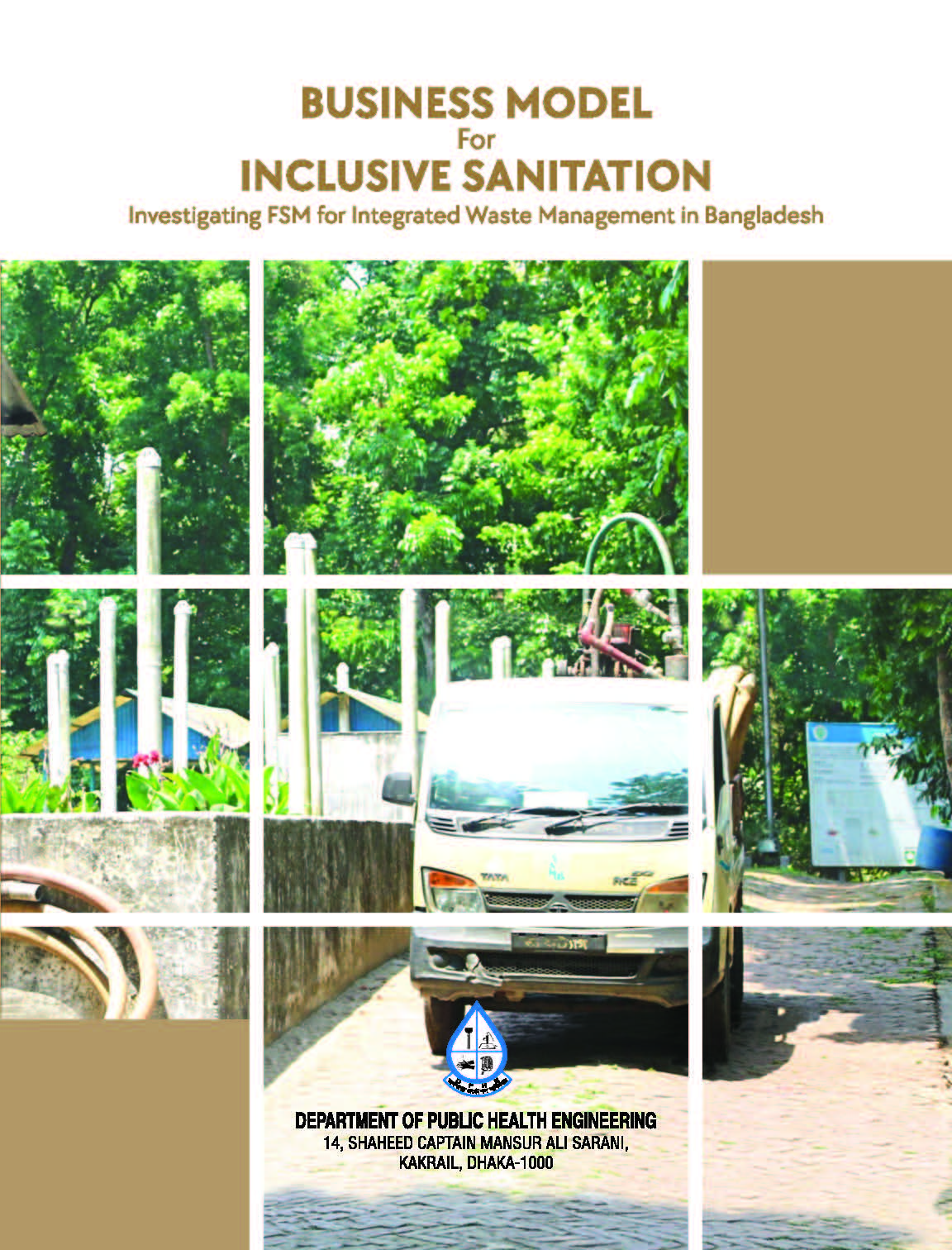
Category(s): Reports
Language: English
Publication Year: 2024
Document Type: PDF
Rapid urbanization and environmental challenges have made sustainable and inclusive sanitation systems increasingly important. In Bangladesh, the growing population and waste generation have created significant challenges in waste management. Effective sanitation services, especially fecal sludge management (FSM), are crucial in urban areas, particularly for users of septic tanks and pit latrines. However, inadequate implementation of fecal waste management often leads to environmental pollution and health risks.
To address this issue, the CWIS-FSM Support Cell of the Department of Public Health Engineering (DPHE) has developed a field-based analytical assessment titled "Business Models for Inclusive Sanitation: Analysis of Fecal Sludge Management in Integrated Waste Management in Bangladesh." This study reviews existing business models for FSM, providing valuable insights into FSM service delivery and the roles of key stakeholders. It evaluates the effectiveness and scalability of business models, identifies necessary steps for successful FSM, and explores the potential for replicating these models.
For policymakers, service providers, and researchers, this study offers critical guidance for improving integrated waste management in Bangladesh. It aims to inspire new ideas and innovations, accelerating efforts to develop citywide inclusive sanitation (CWIS).
দ্রুত নগরায়ণও পরিবেশগত চ্যালেঞ্জের কারণে টেকসই ও অন্তর্ভুক্তিমূলকস্যানিটেশন ব্যবস্থা এখন অত্যন্ত গুরুত্বপূর্ণ হয়ে উঠেছে। বাংলাদেশের জনসংখ্যা ও বর্জ্যের পরিমাণ বাড়ার সাথে সাথে বর্জ্য ব্যবস্থাপনায় বড়ো ধরনের চ্যালেঞ্জ তৈরি হয়েছে। শহরাঞ্চলে স্যানিটেশন সেবা কার্যকর করতে(FSM) বিশেষভাবে জরুরি, বিশেষ করে সেপটিক ট্যাংক ও পিট ল্যাট্রিন ব্যবহারকারীদের জন্য। তবে, পয়ঃবর্জ্য ব্যবস্থাপনার অপর্যাপ্ত বাস্তবায়ন প্রায়ই পরিবেশ দূষণ ও স্বাস্থ্যঝুঁকির কারণ হয়ে দাঁড়ায়।
এই সমস্যা সমাধানে জনস্বাস্থ্য প্রকৌশল অধিদপ্তরের CWIS-FSM সাপোর্টসেল "অন্তর্ভুক্তিমূলক স্যানিটেশনের জন্য ব্যবসায়িক মডেল: বাংলাদেশের সমন্বিত বর্জ্য ব্যবস্থাপনায় পয়ঃবর্জ্য ব্যবস্থাপনার বিশ্লেষণ শীর্ষক একটি মাঠ পর্যায়ের বিশ্লেষণমূলক মূল্যায়ন প্রস্তুত করেছে। এই গবেষণায় বর্তমান পয়ঃবর্জ্য ব্যবস্থাপনায় (FSM) প্রচলিত ব্যাবসায়িক মডেলগুলো পর্যালোচনা করা হয়েছে, যা FSM সেবাদান ও মূল স্টেকহোল্ডারদের ভূমিকা নিয়ে মূল্যবান তথ্য প্রদান করে। এটি কার্যকর ও বিস্তৃতভাবে প্রযোজ্য ব্যাবসায়িক মডেলগুলোর মূল্যায়ন, FSM সফল করতে প্রয়োজনীয় পদক্ষেপ এবং এই মডেলগুলোর পুনরাবৃত্তির সম্ভাবনা বিশ্লেষণ করে।
নীতিনির্ধারক, সেবা প্রদানকারী, এবং গবেষকদের জন্য এই গবেষণাটি বাংলাদেশের সমন্বিতবর্জ্য ব্যবস্থাপনা উন্নয়নে গুরুত্বপূর্ণ নির্দেশনা প্রদান করে। এটি নতুন ধারণা ও উদ্ভাবনকে উৎসাহিত করতে এবং শহরব্যাপী অন্তর্ভুক্তিমূলক স্যানিটেশন (CWIS) উন্নয়নের প্রচেষ্টাকে বেগবান করতে সহায়ক।
Focus Area
FSM, Sanitation, CWIS
Keywords
Business Model, Inclusive Sanitation, Investigating FSM, Integrated Waste Management
Country
Bangladesh
Copyright
This is an open access work distributed under the terms of the Creative Commons Attribution License, which permits unrestricted use, distribution, and reproduction in any medium, provided the original work is properly cited.
You may be interested in
শহরব্যাপী অন্তর্ভুক্তিমূলক স্যানিটেশন পরিষেবা প্রবর্তনে সহায়ক নির্দেশিকা
Publisher(s): Department of Public Health Engineering (DPHE)
- Published: May, 2024
- Language:Bangla
Gender Integration Guideline for Inclusive Sanitation
Publisher(s): Department of Public Health Engineering (DPHE)
- Published: May, 2024
- Language:English
শহরব্যাপী অন্তর্ভুক্তিমূলক স্যানিটেশন প্রবর্তনে জনসম্পৃক্তকরণ নির্দেশিকা
Publisher(s): Department of Public Health Engineering (DPHE)
- Published: May, 2024
- Language:Bangla
Guideline on Transformative Sanitation Technology
Publisher(s): Department of Public Health Engineering (DPHE)
- Published: May, 2024
- Language:English
Metrics and Service Level Benchmark for Integrated Waste Management Plant
Publisher(s): Department of Public Health Engineering (DPHE)
- Published: May, 2024
- Language:English
সমন্বিত বর্জ্য (পয়ঃবর্জ্য ও কঠিন বর্জ্য) পরিশোধনবিষয়ক ধারণাপত্র
Publisher(s): Department of Public Health Engineering (DPHE)
- Published: November, 2022
- Language:Bangla
সেপটিক ট্যাংকের কার্যপ্রণালি ও রক্ষণাবেক্ষণ সহায়িকা
Publisher(s): Department of Public Health Engineering (DPHE)
- Published: October, 2022
- Language:Bangla
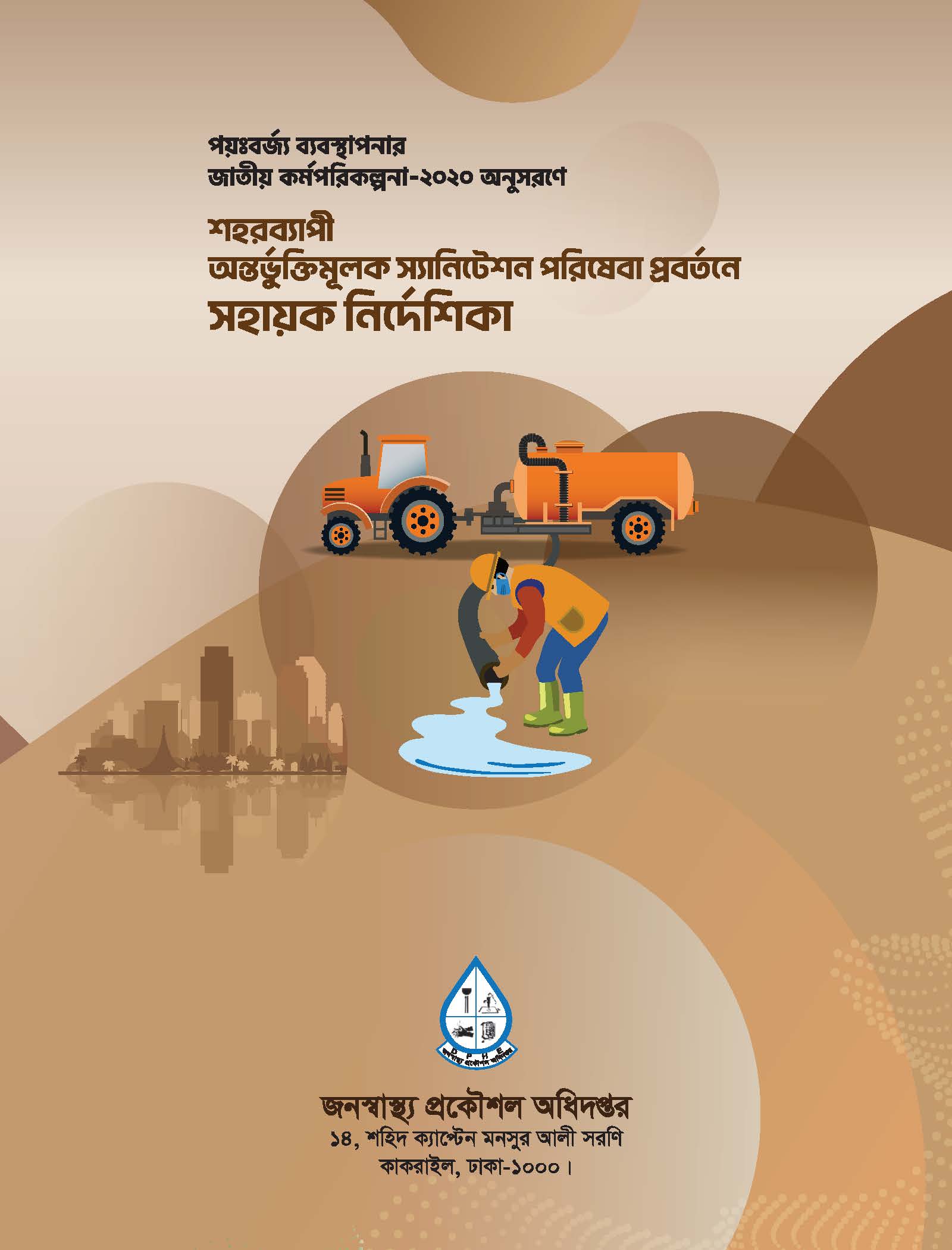
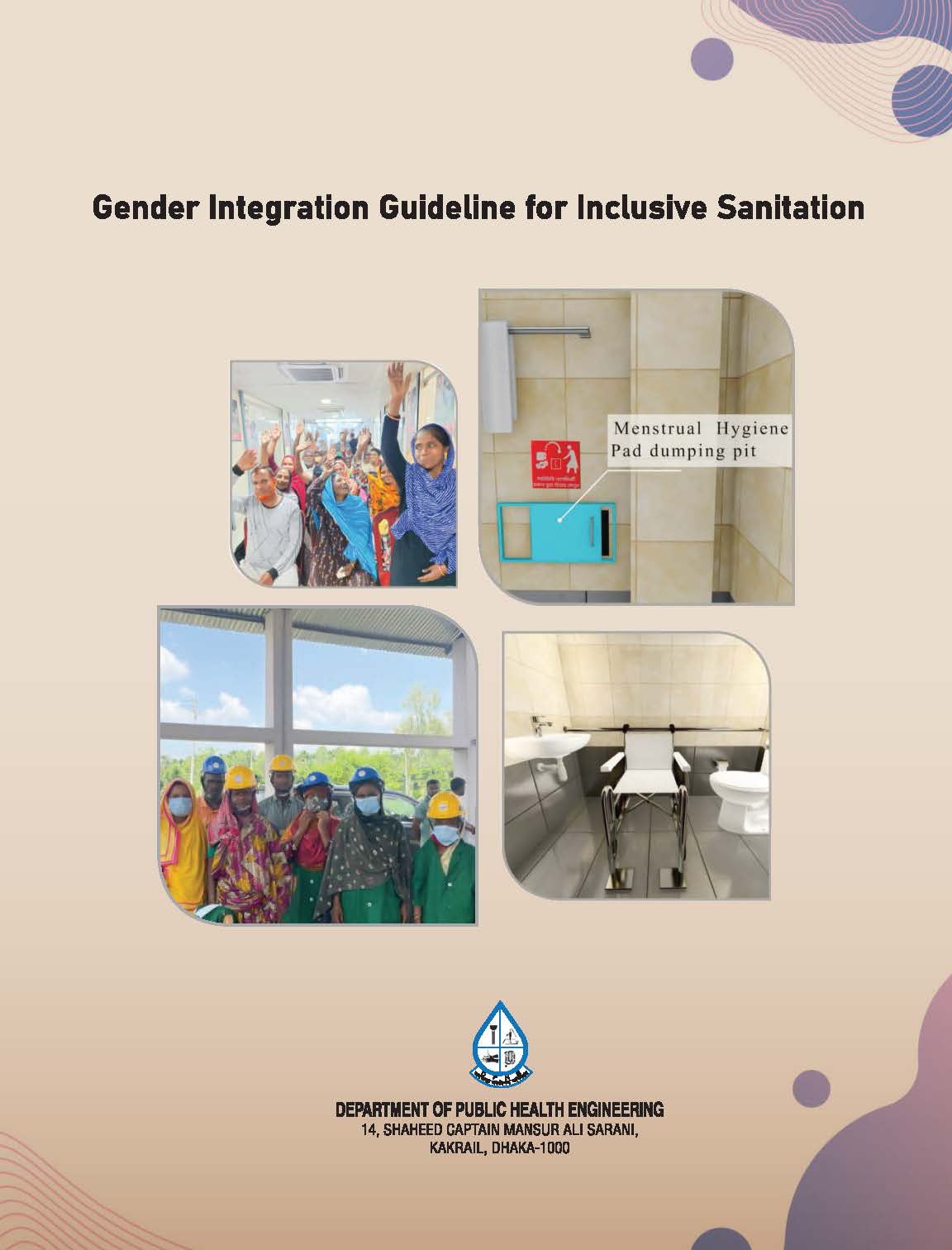
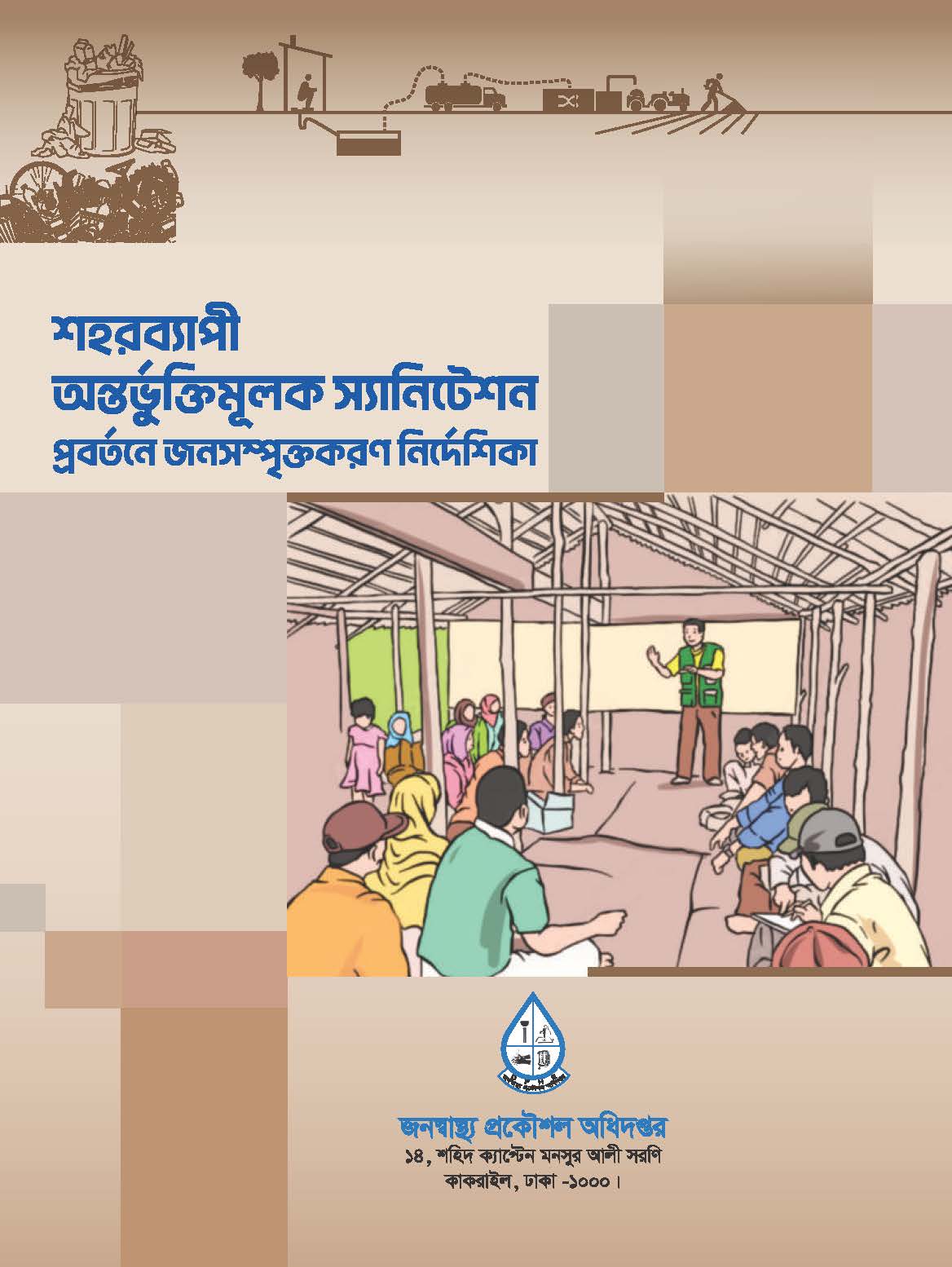
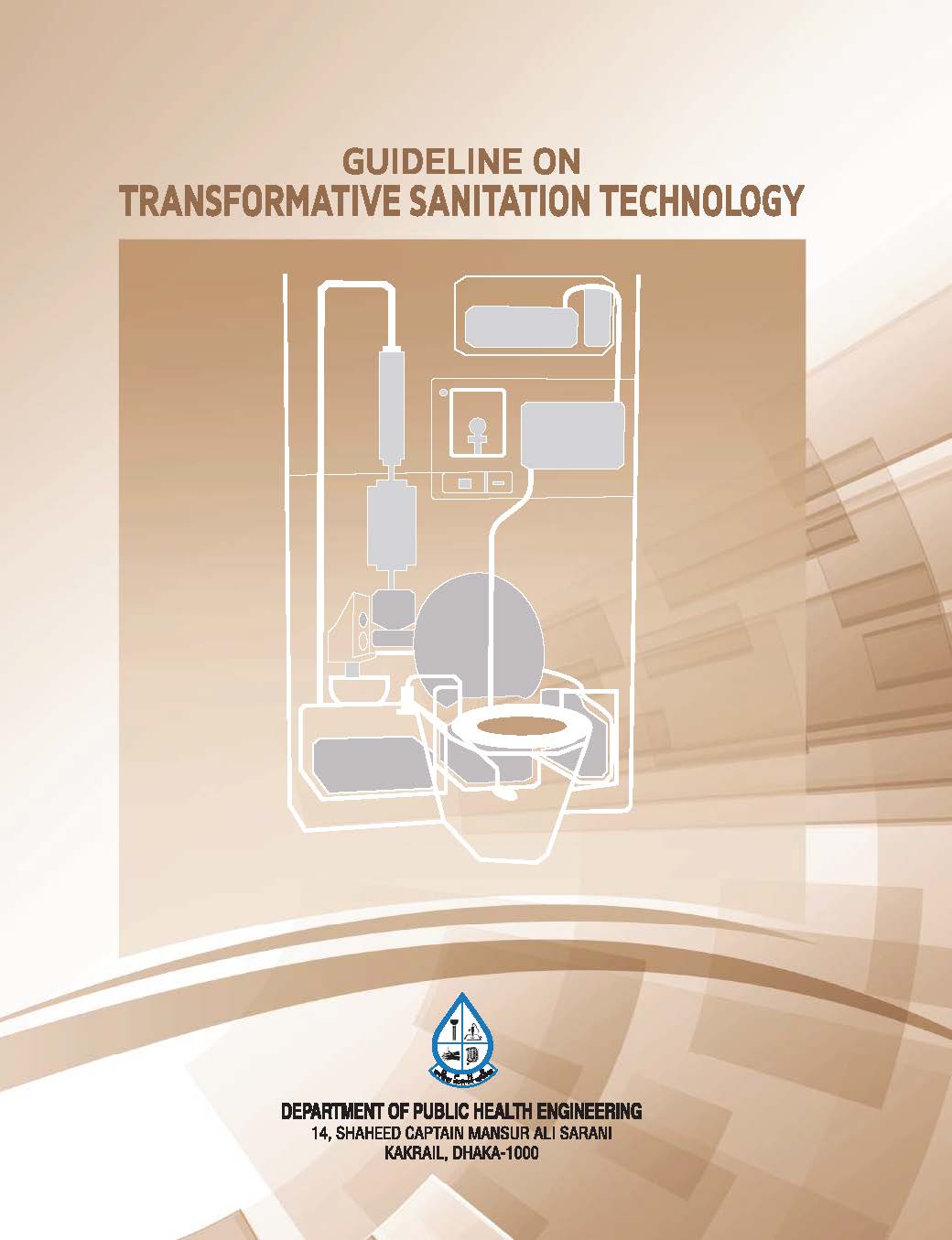
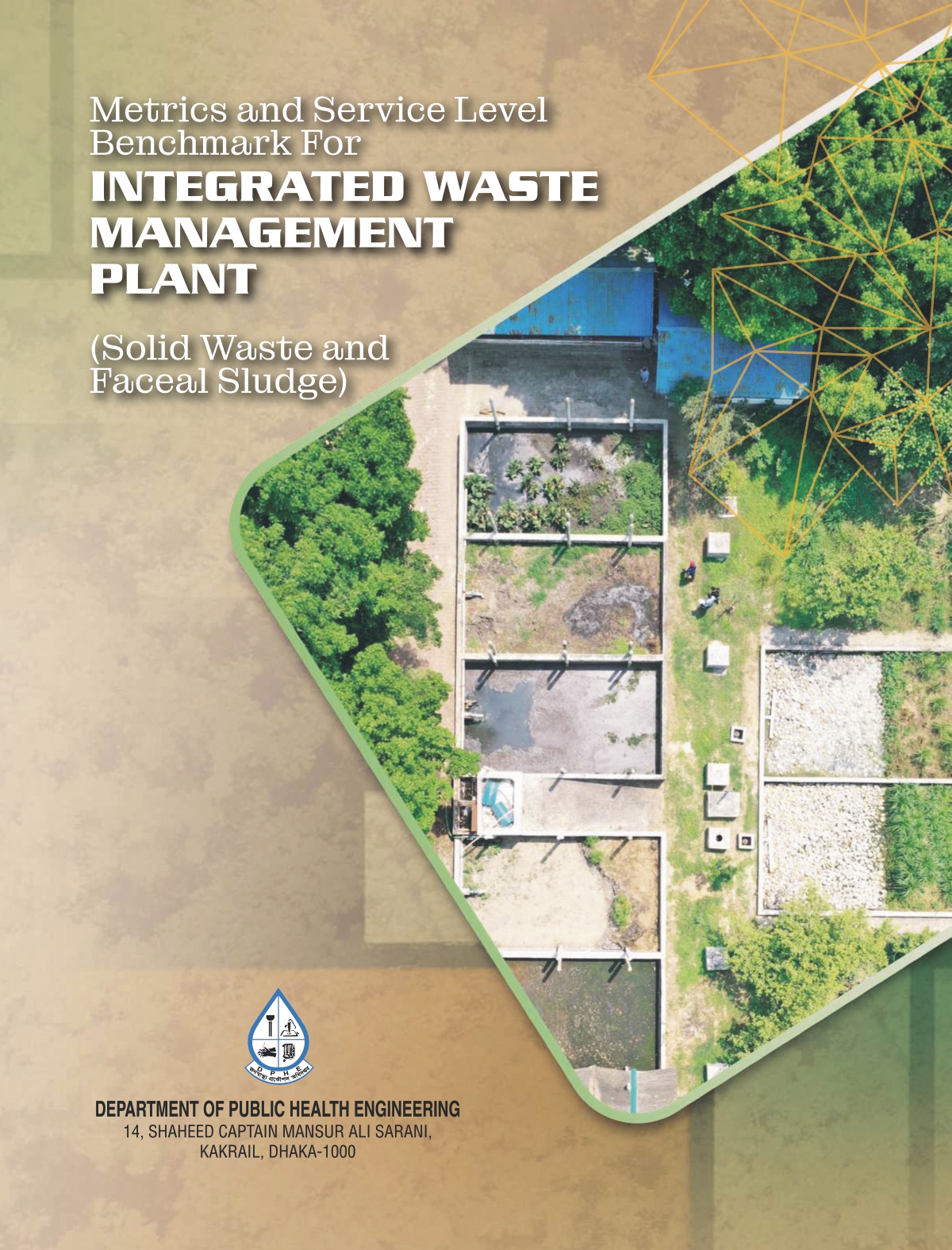
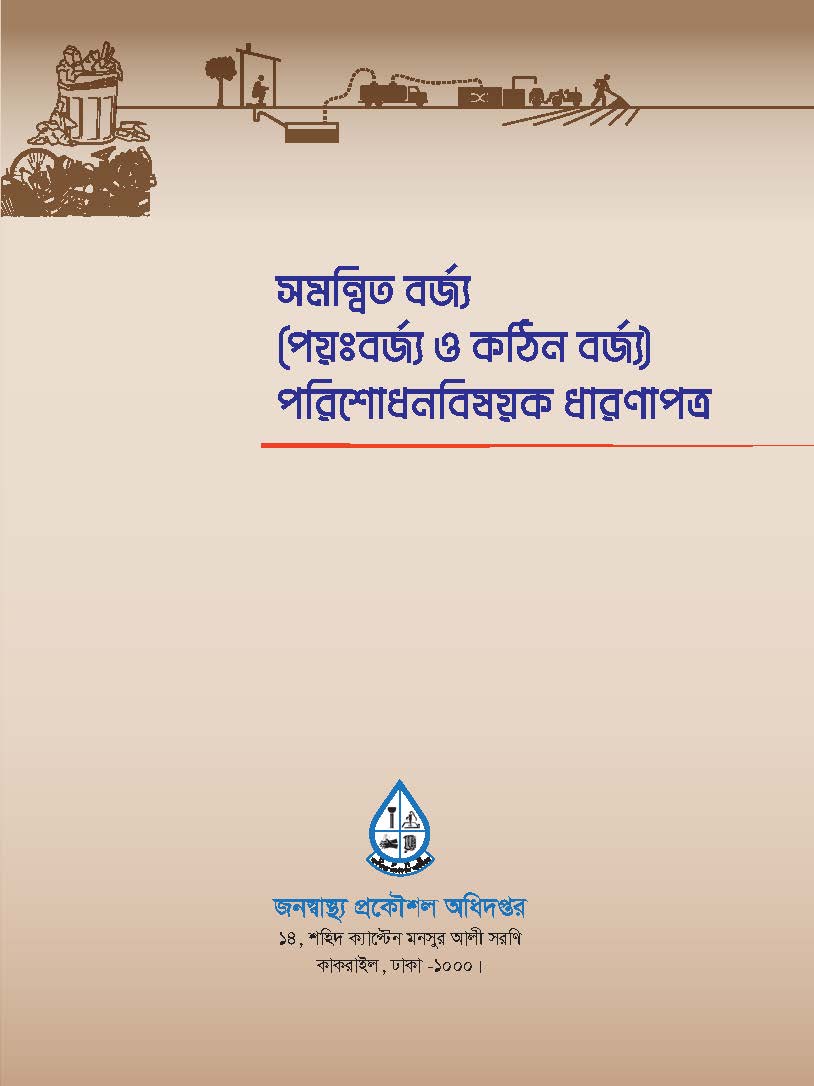
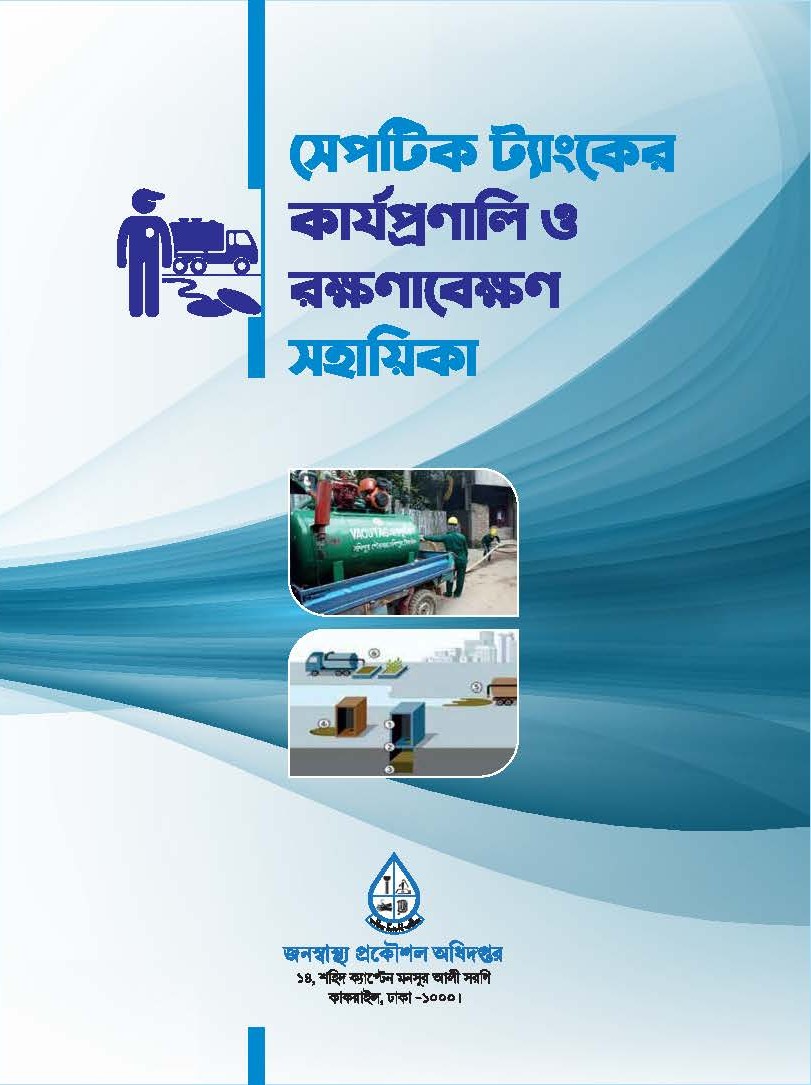
No comment yet.